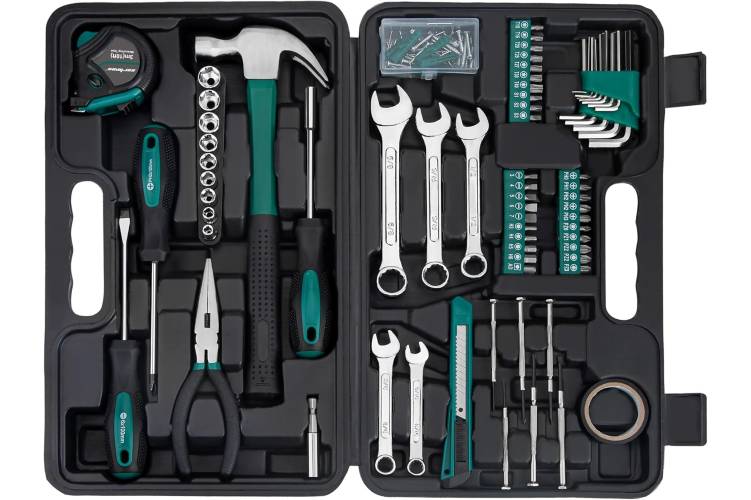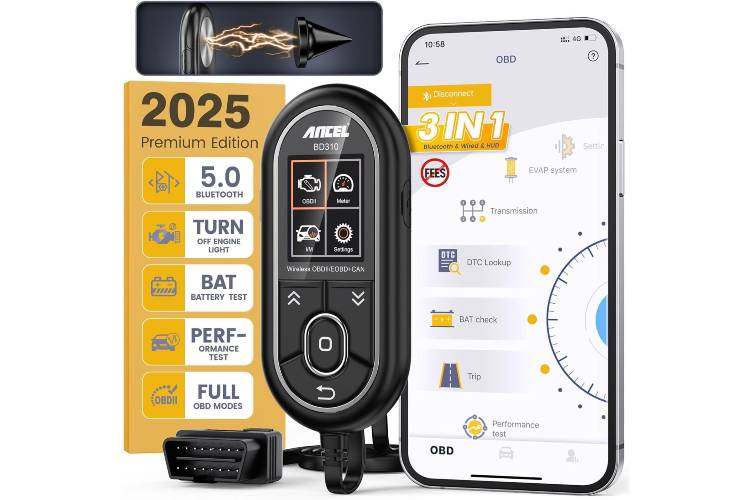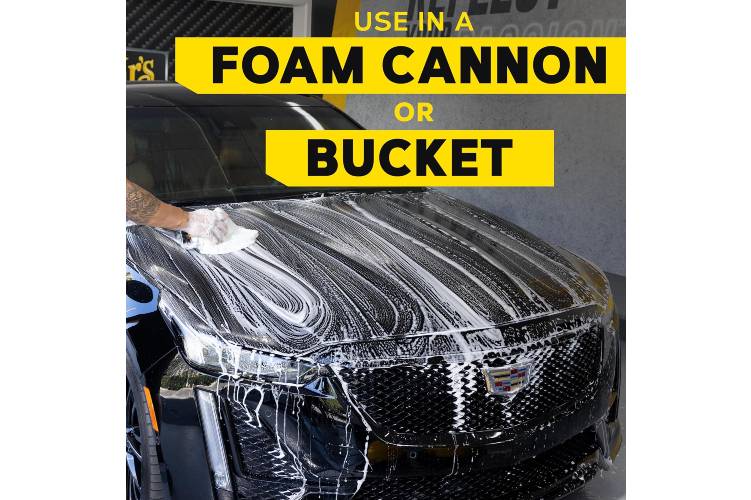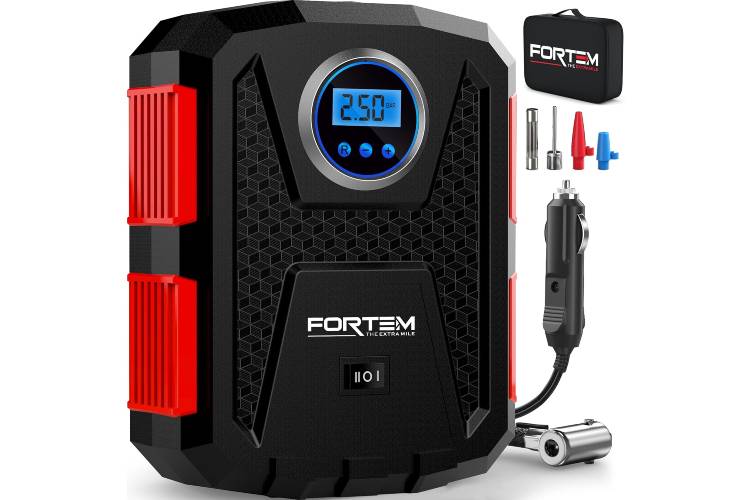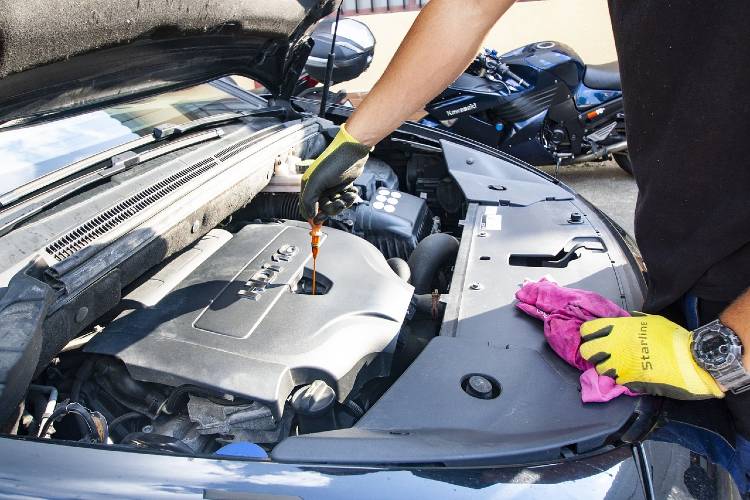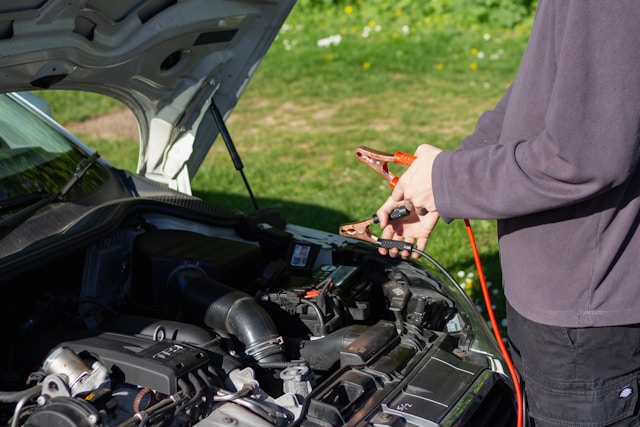As a vehicle owner, I've learned that having the right tools at your disposal can make all the difference when it comes to maintaining and repairing your car. In this comprehensive guide, I'll share my insights on the essential car repair tools that every vehicle owner should have in their arsenal. Whether you're a seasoned DIY enthusiast or just starting out, this article will help you build a toolkit that empowers you to tackle various automotive tasks with confidence.
Introduction to Essential Car Repair Tools
When I first started working on cars, I quickly realized that having the right tools is crucial for successful repairs and maintenance. Over the years, I've accumulated a diverse set of car repair tools that have proven invaluable in keeping my vehicles running smoothly. From basic hand tools to specialized equipment, each item in my toolkit serves a specific purpose and has saved me time, money, and frustration.
In this article, I'll guide you through the essential car repair tools that I believe every vehicle owner should have. We'll explore everything from basic hand tools to advanced diagnostic equipment, safety gear, and organizational solutions. By the end of this guide, you'll have a clear understanding of what tools you need to tackle various automotive tasks and how to build your toolkit over time.
Remember, investing in quality tools is an investment in your vehicle's longevity and your own skills as a DIY mechanic. Let's dive in and explore the world of car repair tools!
Basic Hand Tools for Car Maintenance
When it comes to car maintenance, having a solid set of basic hand tools is essential. These are the workhorses of your toolkit, and you'll find yourself reaching for them time and time again. Here are some of the must-have items I recommend:
- Craftsman Wrenches: A good set of combination wrenches in both metric and SAE sizes is indispensable. I prefer Craftsman wrenches for their durability and lifetime warranty.
- Screwdrivers: Invest in a variety of flathead and Phillips head screwdrivers in different sizes. Look for ones with comfortable grips and magnetic tips for easier handling.
- Pliers and Wire Cutters: The Craftsman and Milwaukee Pliers and Wirecutters Tool set is my go-to choice. It includes needle-nose pliers, channel-lock pliers, and diagonal cutters, which are perfect for various tasks.
- Socket Set: A comprehensive socket set with both shallow and deep sockets, along with various drive sizes (1/4", 3/8", and 1/2"), will cover most of your needs.
- Dead Blow Mallet: This specialized hammer is great for tasks that require force without damaging the surface. It's particularly useful for loosening stuck parts.
Having these basic hand tools in your arsenal will enable you to tackle a wide range of maintenance tasks, from oil changes to brake pad replacements. As you become more comfortable with DIY repairs, you may want to expand your collection with additional specialized tools.
Specialized Tools for Advanced Repairs
As you gain experience and tackle more complex repairs, you'll find that specialized tools can make certain jobs much easier and more efficient. Here are some advanced tools that I've found invaluable:
- Clicker-Type Torque Wrench: This precision tool is essential for tightening bolts to the exact specifications recommended by manufacturers. It's particularly important for tasks like cylinder head installation or wheel lug nut tightening.
- Car Panel Repair Tools: If you're interested in bodywork, a set of panel repair tools can help you remove dents and smooth out damaged areas. Look for a kit that includes various picks, hammers, and dollies.
- OBD-II Scanner: This diagnostic tool plugs into your car's onboard computer and can read error codes, helping you identify issues quickly. While basic models are affordable, more advanced scanners offer additional features for in-depth diagnostics.
- Compression Tester: If you suspect engine problems, a compression tester can help you check the health of your engine's cylinders. It's an invaluable tool for diagnosing issues like worn piston rings or valves.
- Brake Caliper Wind-Back Tool: This specialized tool is necessary for replacing brake pads on many modern vehicles with rear disc brakes. It allows you to retract the caliper piston safely and efficiently.
Investing in these specialized tools may seem expensive at first, but they can save you money in the long run by enabling you to perform more advanced repairs yourself. As always, make sure to research and practice proper techniques before attempting complex repairs.
Electrical Tools for Automotive Diagnostics
In today's modern vehicles, electrical systems play a crucial role in almost every aspect of operation. Having the right electrical tools can help you diagnose and solve a wide range of issues. Here are some essential electrical tools I recommend:
- Klein Digital Multimeter: A good quality multimeter is indispensable for testing voltage, resistance, and continuity in electrical circuits. The Klein digital multimeter is my preferred choice for its accuracy and durability.
- LED Flood Work Light: Proper lighting is crucial when working on your car. The Milwaukee Tool LED flood work light provides bright, even illumination that can be positioned exactly where you need it.
- Wire Strippers and Crimpers: These tools are essential for any electrical work on your vehicle. Look for a set that can handle various wire gauges commonly found in automotive applications.
- Circuit Tester: A simple circuit tester can quickly help you identify live wires and check for proper ground connections. It's a must-have for troubleshooting electrical issues.
- Soldering Iron: For more advanced electrical repairs, a soldering iron can help you make permanent connections or repair damaged wiring. Opt for a temperature-controlled model for precision work.
When working with automotive electrical systems, always prioritize safety. Disconnect the battery before starting any electrical work, and use insulated tools when appropriate. With these electrical tools in your arsenal, you'll be well-equipped to tackle a wide range of diagnostic and repair tasks.
Safety Equipment for DIY Car Repairs
Safety should always be your top priority when working on your vehicle. Proper safety equipment not only protects you from injury but also gives you the confidence to tackle repairs with peace of mind. Here's the essential safety gear I always keep on hand:
- Reusable Work Latex Gloves: These protect your hands from chemicals, grease, and sharp edges. I prefer latex gloves for their durability and dexterity, but nitrile gloves are a good alternative if you have latex allergies.
- Safety Glasses: Protect your eyes from debris, fluids, and potential flying objects. Look for a pair that's comfortable and provides good coverage.
- Steel-Toed Work Boots: These protect your feet from heavy falling objects and provide good traction on potentially slippery surfaces.
- Fire Extinguisher: Always keep a fire extinguisher rated for automotive fires (Class B and C) in your work area. It's a crucial safety measure that could save your vehicle and your workspace.
- First Aid Kit: Accidents can happen, so keep a well-stocked first aid kit nearby. Include items like bandages, antiseptic wipes, and burn cream.
Remember, no repair is worth risking your safety. Always use the appropriate safety equipment, even for quick jobs. It's better to take a few extra seconds to gear up than to risk an injury that could have been prevented.
Cleaning and Lubricating Products
Keeping your car clean and well-lubricated is essential for its longevity and performance. Here are some cleaning and lubricating products that I always keep in my garage:
- Rust Penetrant: This miracle product helps loosen stubborn, rusted bolts and nuts. It's a must-have for working on older vehicles or parts exposed to the elements.
- Brake Cleaner: This powerful solvent is perfect for cleaning brake components and other parts that need to be free of oil and grease.
- Silicone Lubricant: This versatile lubricant is great for rubber and plastic parts, such as weatherstripping and hinges. It doesn't attract dirt like oil-based lubricants.
- Citrus Degreaser: For heavy-duty cleaning jobs, a citrus-based degreaser is effective and environmentally friendly. It's perfect for cleaning engine bays and undercarriage components.
- Microfiber Towels: These lint-free towels are perfect for cleaning delicate surfaces without scratching. Keep a stack on hand for various cleaning tasks.
Using the right cleaning and lubricating products not only makes your job easier but also helps protect your vehicle's components. Always follow the manufacturer's instructions and wear appropriate safety gear when using these products.
Organizational Tools for Your Garage
A well-organized workspace is crucial for efficient and enjoyable car repairs. Here are some organizational tools that have made a big difference in my garage:
- Magnetic Tool Holder: This handy device keeps your metal tools organized and easily accessible on your garage wall.
- Pegboard System: A versatile pegboard allows you to customize your tool storage and keep frequently used items within easy reach.
- Rolling Tool Cart: For larger jobs, a rolling tool cart keeps your tools mobile and organized. Look for one with multiple drawers and a sturdy construction.
- Parts Organizer: Keep small parts, nuts, and bolts organized with a multi-drawer parts organizer. This prevents lost pieces and saves time during reassembly.
- Zip Nylon Ties: These versatile ties are great for bundling wires, securing loose parts, and even creating temporary fixes. Keep a variety of sizes on hand.
An organized workspace not only makes your work more efficient but also helps prevent lost tools and parts. Take the time to set up a system that works for you, and you'll find your repair jobs go much smoother.
Essential Reference Materials for Car Repairs
Having access to the right information is just as important as having the right tools. Here are some essential reference materials that I rely on:
- Factory Service Manual: This comprehensive guide provides detailed information specific to your vehicle model. It's invaluable for complex repairs and diagnostics.
- Online Forums and Communities: Joining online communities dedicated to your specific vehicle make can provide a wealth of knowledge and support from experienced DIYers.
- YouTube Tutorials: Many skilled mechanics share detailed repair guides on YouTube. Just be sure to verify the credibility of the source before following their advice.
- Automotive Repair Apps: There are several smartphone apps available that provide repair guides, diagnostic information, and even augmented reality assistance for car repairs.
- Torque Specification Charts: Keep a chart of common torque specifications handy to ensure you're tightening bolts correctly.
Remember, while these resources are incredibly helpful, always prioritize the information in your vehicle's official service manual. When in doubt, consult a professional mechanic, especially for safety-critical repairs.
Budget-Friendly Tool Options for Beginners
If you're just starting out with DIY car repairs, building a complete toolkit can seem daunting and expensive. However, there are ways to get started without breaking the bank. Here are some budget-friendly options I recommend for beginners:
- Combination Tool Sets: Look for comprehensive sets that include basic hand tools like wrenches, sockets, and screwdrivers. These often provide better value than buying tools individually.
- Harbor Freight Tools: While not always top-of-the-line, Harbor Freight offers affordable tools that can be suitable for occasional use. Their lifetime warranty on hand tools is a nice bonus.
- Second-Hand Tools: Check local garage sales, flea markets, or online marketplaces for used tools. You can often find quality tools at a fraction of their original price.
- Rental Options: For specialized tools you'll only use occasionally, consider renting from auto parts stores. This allows you to access high-quality tools without the upfront investment.
- DIY Alternatives: For some specialized tools, you can create DIY versions. For example, a homemade oil filter wrench using a belt can work in a pinch.
Remember, it's better to start with a few quality tools than a large set of poor-quality ones. Focus on acquiring the essentials first, and gradually build your collection as you take on more advanced repairs.
Building Your Car Repair Tool Kit Over Time
Building a comprehensive car repair toolkit is a journey, not a destination. Here's how I recommend approaching it:
- Start with the Basics: Begin with essential hand tools like wrenches, sockets, and screwdrivers. These will allow you to tackle most basic maintenance tasks.
- Identify Your Needs: As you work on your vehicle, make note of tasks you can't complete due to lacking tools. This will guide your future purchases.
- Prioritize Quality for Frequently Used Tools: For tools you'll use often, invest in higher quality options. They'll last longer and perform better over time.
- Look for Deals: Keep an eye out for sales at auto parts stores and online retailers. Black Friday and Father's Day often bring great deals on tools.
- Consider Your Vehicle's Needs: Some vehicles require specific tools for certain repairs. Research your make and model to identify any unique tool requirements.
Remember, building your toolkit is a gradual process. Don't feel pressured to buy everything at once. With each repair you tackle, you'll gain more tools and more skills.
Proper Tool Maintenance and Storage
Taking care of your tools ensures they'll be ready when you need them and can save you money in the long run. Here are my tips for proper tool maintenance and storage:
- Clean After Use: Wipe down your tools after each use to remove dirt, oil, and debris. This prevents rust and keeps them in good condition.
- Proper Storage: Store tools in a dry place to prevent rust. Use tool chests, pegboards, or magnetic strips to keep them organized and easily accessible.
- Regular Inspection: Periodically inspect your tools for wear or damage. Replace any tools that show signs of excessive wear to prevent potential injuries.
- Lubrication: Keep moving parts on tools like pliers and adjustable wrenches lubricated with a light machine oil.
- Calibration: For precision tools like torque wrenches, follow the manufacturer's recommendations for regular calibration.
By taking good care of your tools, you'll ensure they remain reliable and effective for years to come. This not only saves you money but also gives you confidence in your repairs.
When to Invest in Professional-Grade Tools
As your skills and ambitions grow, you may find yourself considering professional-grade tools. Here's when I think it's worth making the investment:
- Frequent Use: If you're using a particular tool frequently, a professional-grade version can offer better performance and durability.
- Precision Requirements: For tasks that require high precision, like engine rebuilds, professional tools can provide the accuracy you need.
- Time-Saving Features: Some professional tools offer features that can significantly speed up your work, which can be valuable if you're doing frequent repairs.
- Specialized Repairs: If you're regularly tackling complex repairs in a specific area (e.g., transmission work), specialized professional tools can be worth the investment.
- Long-Term Cost Savings: While more expensive upfront, professional tools often last longer and perform better, potentially saving money over time.
Remember, you don't need to replace all your tools at once. Start with the ones you use most frequently or where precision is most critical.
Conclusion: Empowering Yourself with the Right Tools
Throughout this article, we've explored the essential car repair tools that every vehicle owner should consider having in their arsenal. From basic hand tools to specialized equipment, safety gear, and organizational solutions, each item plays a crucial role in empowering you to maintain and repair your vehicle effectively.
Remember, building your toolkit is a journey. Start with the basics, focus on quality for frequently used tools, and gradually expand your collection as your skills and needs grow. Always prioritize safety, keep your workspace organized, and don't hesitate to consult reliable resources or professionals when needed.
By investing in the right tools and knowledge, you're not just saving money on repairs – you're gaining a deeper understanding of your vehicle and the confidence to tackle a wide range of automotive tasks. So roll up your sleeves, grab your tools, and embrace the rewarding world of DIY car maintenance and repair!
Ready to start building your car repair toolkit? Visit your local auto parts store or check out online retailers to begin your journey. Remember, investing in quality tools is an investment in your vehicle's longevity and your own skills. Happy wrenching!


